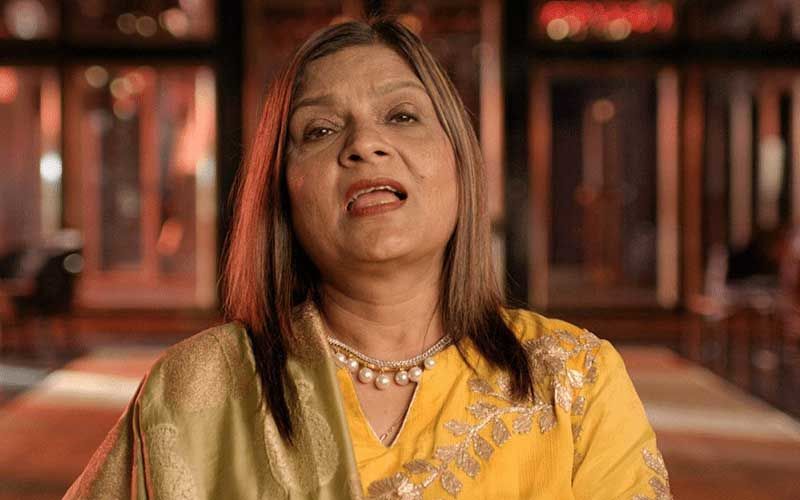My experiences on Funny and Bad tinder dates, and also how I take something out of those dates and keep playing them in my mind, this video is basically ab. This Was The Tinder Of The 1800s. For many single ladies and gentlemen of the 19th century, placing a matrimonial advertisement in a local newspaper was considered a viable alternative to traditional courtship. It was especially popular with those who were new to an area or those who had no family or social groups through which they might. The drab Tinder ad in fact mimics matrimonial ads in India and in a way does not differentiate its brand or product in any way. While trying to strike an emotional chord with its audience it fails to establish the young vibrant image, which is key to it. What they got wrong in the message is that it is dating and not marriage. Welcome to the most affordable matrimonial site in India - Matchfinder. We have brides and grooms from 2000 different communities in India seeking matches from profiles like yours. Sign-up for free to get access to unlimited Indian brides and grooms. Matchfinder is the first online matrimony website to introduce 100 Rs memberships. Matchfinder also offers paid matrimony services like personal.
By Suneera TandonWriter
Matrimonial websites in India aren't what they used to be.
For years, online matchmakers such as Shaadi.com and Bharat Matrimony focused on keeping conservative parents happy, reaffirming the idea that the responsibility of finding a life partner rested with elders alone.
However, with growing incomes and greater exposure to global trends, romantic relationships are undergoing a huge change in urban India, spurred by the spread of apps like Tinder and Woo. Today, the young and tech-savvy are taking charge of their love lives with a bolder, more individualistic approach.

And, matrimonial websites are taking note.
Earlier this month, Shaadi.com, one of India's largest matrimonial website, roped in stand-up comedian Neeti Palta for an online campaign titled 'Ladies First,' which encourages women to make the first move, breaking an age-old norm in the dating game.

'I don't think these campaigns and companies are responding to the dating websites as much as they are to the cultural shift in the country. And this latest Shaadi.com advertisement is the newest representation of that shift,' said Vishnu Srivatsav, creative head for south India at advertising agency DDB Mudra.
That's a big step for an industry that took years to convince Indians that the love of their life could be found online.
Tinder Marriages
Transforming tradition

And, matrimonial websites are taking note.
Earlier this month, Shaadi.com, one of India's largest matrimonial website, roped in stand-up comedian Neeti Palta for an online campaign titled 'Ladies First,' which encourages women to make the first move, breaking an age-old norm in the dating game.
'I don't think these campaigns and companies are responding to the dating websites as much as they are to the cultural shift in the country. And this latest Shaadi.com advertisement is the newest representation of that shift,' said Vishnu Srivatsav, creative head for south India at advertising agency DDB Mudra.
That's a big step for an industry that took years to convince Indians that the love of their life could be found online.
Tinder Marriages
Transforming tradition
Long before the internet got involved, matchmaking in India depended on word-of-mouth recommendations, references from priests and marriage bureaus, or simply the newspaper classifieds section.
It wasn't until the late 1990s that websites such as Jeevansathi.com and Shaadi.com were introduced, encouraging Indians to look online for the right arranged-marriage match. This marked the slow beginning of a major cultural shift.
At the time, parents treaded with caution before posting profiles of their sons and daughters online, recalls Sumeet Singh, chief marketing officer, Info Edge Media that owns matrimonial portal Jeevansathi.com. Over the next decade, Jeevansathi and Bharat Matrimony worked to make online matchmaking more acceptable to parents, who gradually warmed up to the idea. For instance, these campaigns spoke to parents about the ease of using the internet to search for brides and grooms.
In the past few years, though, another change has been afoot. Young Indians have been carving out more independence from parents and matrimonial websites have started redesigning themselves for the more progressive user.
In 2013, a Bharat Matrimony ad campaign depicted a husband backing his wife's choice to work, despite his parents' disapproval. In 2014, a Shaadi.com commercial urged men to reverse the roles and fast for the health of women during Karvachauth, a popular Hindu festival. The campaign featured popular actors and even author Chetan Bhagat.
'We like to do new stuff because our audience is changing every day,' said Gourav Rakshit, CEO at Shaadi.com.
Similarly, a Jeevansathi.com campaign last year focused on encouraging women to get online to find a match. 'It's the next level of positioning now where parents are not necessarily active in decision-making as opposed to their children,' Jeevansathi's Singh explained.
Besides, India's sizeable youth population and growing smartphone penetration have meant that casual dating apps and websites, too, are doing brisk business. The country is Tinder's fastest-growing market in Asia, even as home-grown apps like TrulyMadly and Woo make merry. Tinder's first ad campaign in India tried to warm up a conservative market to the idea of dating by showing parental consent.
In their campaigns, they often prioritise common interests and personalities, a shift away from the singular focus on professions and status that often dominates the traditional matchmaking channels. For instance, Woo hosted a web series called 'Let's Talk,' inviting men to describe themselves beyond their professions. And TrulyMadly asked women to check out men. Clearly, the drift is being captured, albeit only for urban Indians.
Yet, there are some things that haven't changed. It is still a conservative society where arranged marriages are still the norm. 'Trends are changing, yes, but we are very far from a socio-economic structure where we will accept dating very openly,' Jeevansathi's Singh said.
So while new-age apps push the boundaries, websites maintain a fine balance. They appeal to modern sensibilities even while not leaving parents, who still often have the final say, out in the cold.
'They cannot alienate their core audience, i.e. the parents,' Sumesh Menon, co-founder and managing director U2opia Mobile that owns matchmaking app Woo, said.
Dating apps like Tinder and Woo may be trendy, but when it gets serious, it is India's matrimonial websites that still rule the roost.
As a testament to that, one of India's oldest matchmaking portals is all set to launch its initial public offering on Indian bourses on Monday. The 17-year-old Matrimony.com, which operates websites such as BharatMatrimony.com, CommunityMatrimony.com, and EliteMatrimony.com, is looking to raise Rs 500 crore ($78.3 million). These proceeds will be used to repay bank overdrafts, buy land to build a new office in Chennai, and help strengthen its presence in the $40 billion to 50 billion Indian wedding market (paywall).
Chennai-based Matrimony.com is the country's largest matchmaking company by number of visitors, according to media analytics firm comScore. It caters to over 3.2 million users across its network of over 300 websites. This is the company's second attempt at going public, after it scrapped its earlier plans in December 2016, citing unfavourable market conditions. Coming over a year after e-commerce firm Infibeam's April 2016 outing, Matrimony.com's IPO would be among the few by Indian internet firms.
And while dating apps are gaining traction, Matrimony.com's founder and CEO Murugavel Janakiraman believes arranged marriages are still the norm, meaning there's still room for his business to grow, especially as internet access expands.
'India is a strong matrimony market,' Janakiraman said, adding that new-age dating apps are likely to struggle to make substantial profits, given that it's not easy to get women to use them. Matrimony.com, on the other hand, is among the handful of profitable Indian web ventures.
The serendipitous beginning
The idea for Matrimony.com emerged in the 1990s, when Janakiraman was working with AT&T-Lucent in the US. He had set up a community website to connect with other Indians, and noticed that it was the matrimony section that attracted the most traffic. So, in 2000, he decided to turn this into a bigger business, and returned to Chennai to launch Matrimony.com.
For decades, Indian arranged marriages have mainly been organised through classified advertisements, offline marriage bureaus and brokers, or word-of-mouth referrals of family and friends. The first online matchmaking portal, Shaadi.com, was established in 1996, marking a new era for the business.
To set his company apart, Janakiraman decided to focus on making it easy for users to search for partners from a wide range of religions, castes, languages, and other categories. He began with Tamilmatrimony.com and Telugumatrimony.com, and gradually expanded into over 300 specialised portals, including ones for divorced people, mangliks (people with a certain astrological condition that is believed to be unfavourable for marriage), doctors, and defence personnel. It also runs a portal for wealthy Indians called Elitematrimony.com, besides separate websites for Arabs, Sri Lankans, Bangladeshis, and Pakistanis.
Now, Janakiraman said, online matchmaking portals account for around 10% of the market in India. And while competitors, including Shaadi.com and Jeevansaathi.com (launched in 2004), also provide community-based searches, they don't match Matrimony.com's range.
'We have been tracking data since 2006, and since then, we have had 26 million users of our sites,' Janakiraman said. Bharatmatrimony.com's mobile app, launched in 2011, has had five million downloads.
Matrimony.com saw a 22% increase in the number of profiles listed on its website last year, and Janikaraman expects this number to surge as internet access becomes more affordable. It makes money largely through subscriptions—you can create a profile on the site for free but need to be a paid member to contact someone you are interested in. Membership for Bharatmatrimony costs Rs4,200 for three months, while that on EliteMatrimony costs Rs50,000 for the same period and goes up to Rs10 lakh for two years.
Last year, Matrimony.com earned Rs 292 crore in revenue and made a profit of Rs44 crore, Janakiraman told Quartz. It has so far raised Rs 99 crore from Bessemer Venture Partners, Mayfield, and JP Morgan Asset Management. These venture capital investors will sell some of their stakes through the IPO, the company said in its red herring prospectus.
Now, Matrimony.com is hoping to go beyond matchmaking, leveraging its brand to offer wedding-related services, too.
Earlier this year, it began offering services like wedding photography, videography, and catering in Tamil Nadu, and plans to launch the same in other states once the model is perfected, Janakiraman said.
But the company's previous attempt at diversification didn't go so well. In 2012, Matrimony.com launched Tambulya, an online return-gift store, but failing to turn profitable and running into regulatory issues, it shut shop. Janakiraman's dating app, Matchify, didn't have many takers either and was discontinued within a year of its launch in 2015.
This article first appeared on Quartz.
Support our journalism by contributing to Scroll Ground Reporting Fund. We welcome your comments at letters@scroll.in.Share your perspective on this article with a post on ScrollStack, and send it to your followers.
